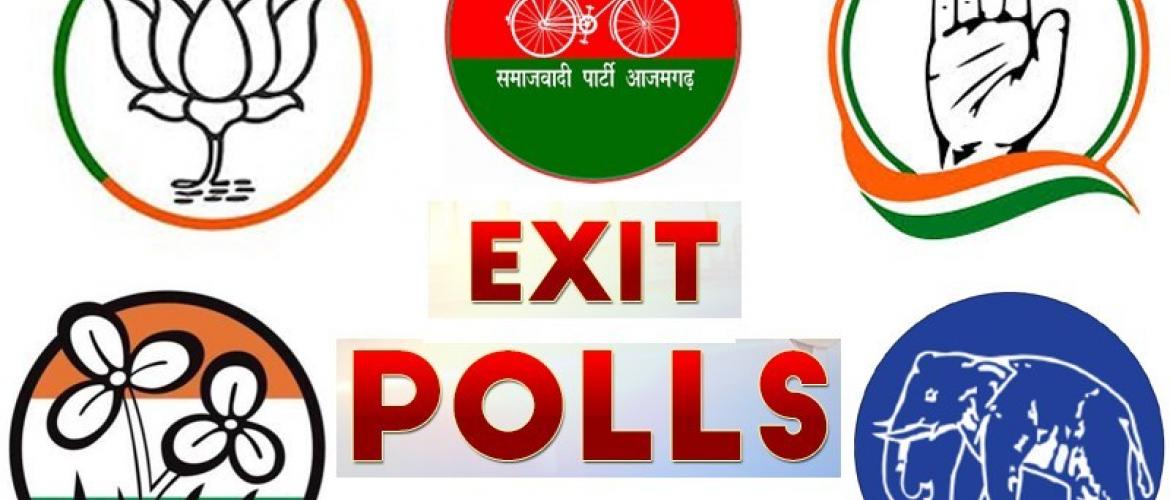Controversy has erupted over the near-unanimous result in exit polls, showing the BJP-led National Democratic Alliance (NDA) coming back to power. Opposition parties have denounced the exit polls and have demanded precautionary measures against any instance of EVM tampering.
Background
An election exit poll is a poll of voters taken immediately after they have exited the polling stations. Unlike an opinion poll, which asks for whom the voter plans to vote, or some similar formulation, an exit poll asks for whom the voter actually voted. A similar poll conducted before actual voters have voted is called an entrance poll.
Pollsters (usually private companies working for newspapers or broadcasters) conduct exit polls to gain an early indication as to how an election has turned out, as in many elections the actual result may take hours or even days to count.
Indian exit polls have had a sketch record at best, with the results of the 2004 Lok Sabha elections being an example of how exit polls can be wrong.
ANALYSIS
There was a widespread controversy during the Indian general election, 2014 when the Election Commission of India barred media organisations from displaying exit poll results until the votes had been counted. This was followed by a strong protest from the media which caused the Election Commission to withdraw its statement. Since then exit polls (during polling window) are prohibited in India, only post-poll opinion surveys are allowed after polling is over.
In the five years since the media has undergone a radical change. Focus is now placed on aggressive reporting, flashy banners and a slight deviation from traditional media ethics.
Almost all exit polls displayed after the last phase of voting show a near-unanimous winner: the BJP. It is not to suggest that all have media houses benefit from portraying a single party as it a winner, rather it is a result of their early field reporting. However, it is prudent to remember that exit polls are famous for being unpredictable, which defeats the purpose of having exit polls.
SO, DO EXIT POLLS MATTER?
They do. There is no accounting for the influence exit polls have on post-election alliances, many of which have ruled significant swathes of the country since independence. Exit polls are much like a temperature reading of the country’s electorate, and poll data is invaluable to underdog parties looking to topple an incumbent government.
Additionally, exit polls have had a net positive impact on voters themselves. Exit polls interview give out a feeling that every vote cast actually counts, while also simultaneously providing an apolitical reporting of the voting count.
WEAKNESS APLENTY
However, exit polling process suffers from all the shortcomings of any other poll, for academic or political purposes. Sample sizes often become an area of concern as it is impossible to survey all voters right after they cast their votes. Similarly, making predictions on exit poll surveys are risky as there is nothing to ascertain that a voter has actually voted in favour of the party he claims to be had.
Additionally, exit polls are deemed to be the final before the final. That is dangerously untrue as the election commission does not host exit polls, only media houses do. The media houses may employ thousands of reporters on the field but they do not have access to the real voting data, which only the EC can collect through its voting machines.
ASSESSMENT
Our assessment is that exit polls are an integral part of a country’s election media cycle. There is no viable substitute for news agencies to adopt other than predicting the winner based on spotty field reporting. However, we believe that exit polls should not be taken to be the final count. We feel that the public often confuses exit polls with final results, leading to either a resentment towards the EC or news agencies when the results are different from the predictions. We firmly believe that exit polls are indispensable facet of democracy but we do not feel they are firm indicators of an electoral victory or defeat.

